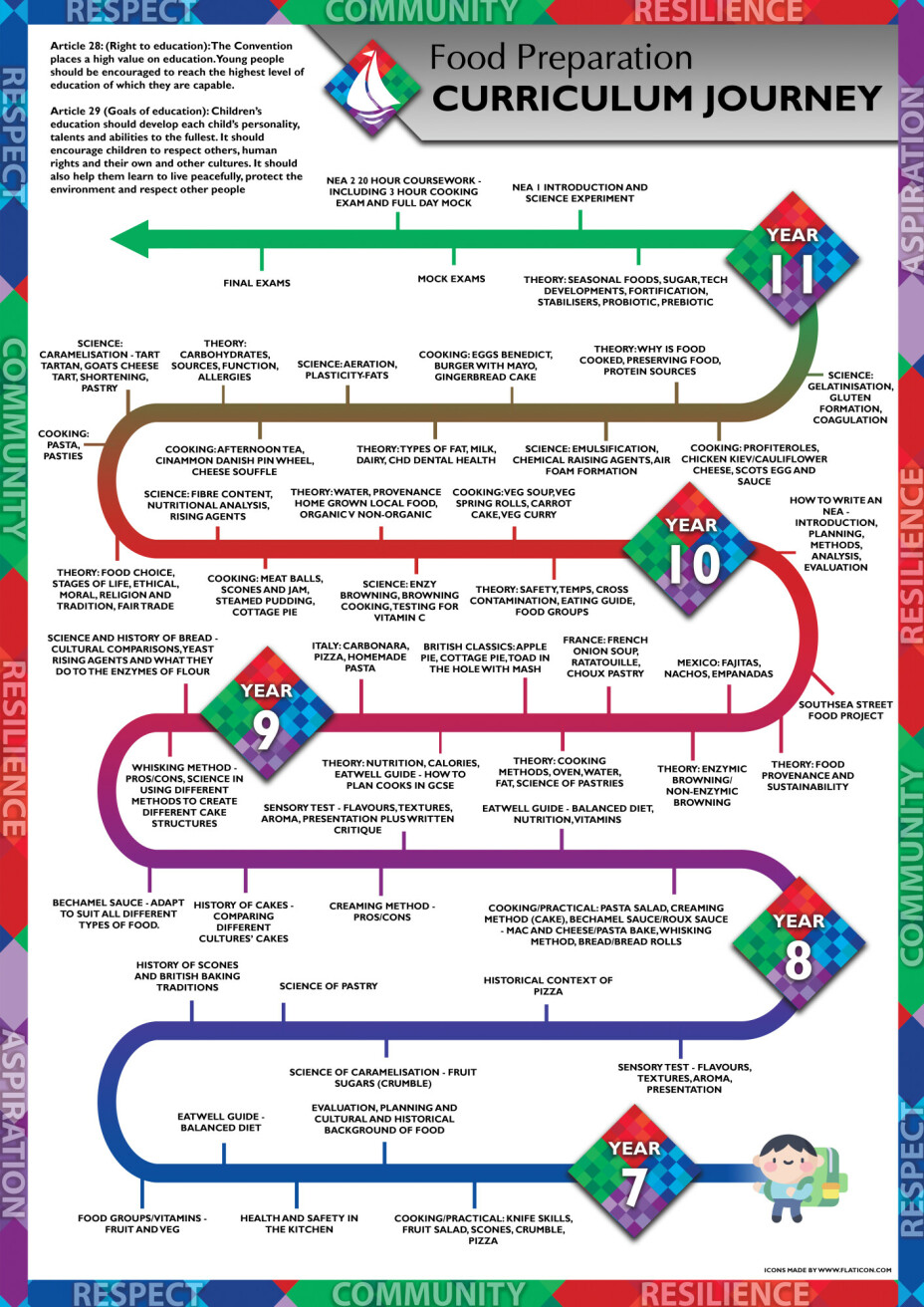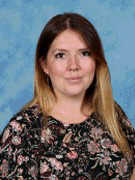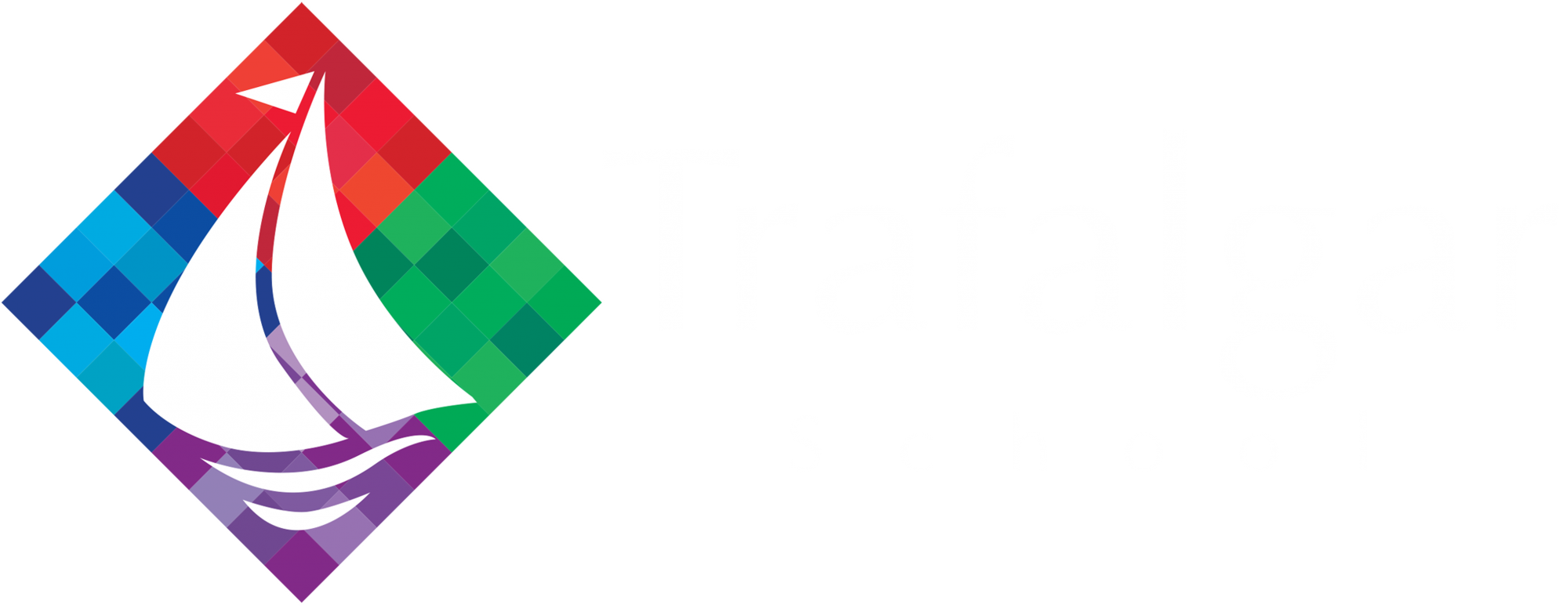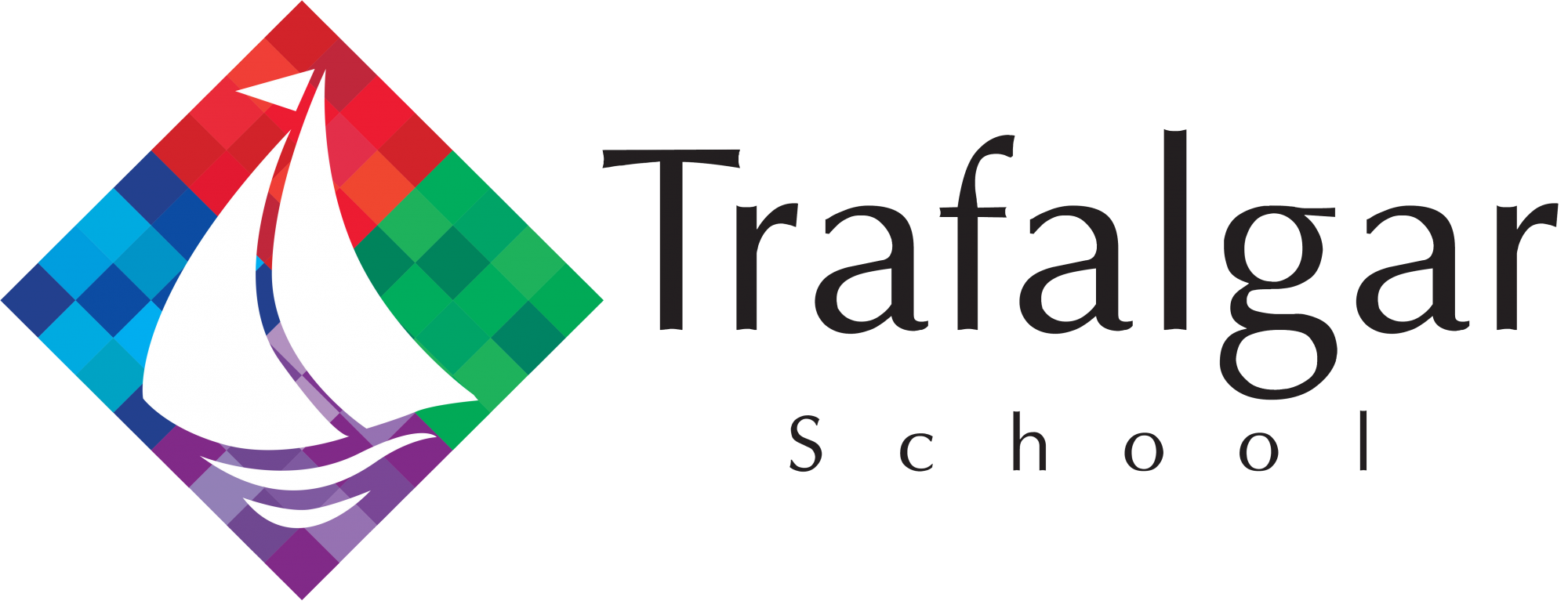Food Technology
As part of their work with food, students will be taught how to cook and apply the principles of nutrition and healthy eating. Learning how to cook is a crucial life skill that enables students to feed themselves and others affordably and well, now and in later life. We have worked hard to create a comprehensive curriculum that promotes safety, passion, creativity and discipline within the kitchen, as well as important social factors such as food sourcing, ethical eating and the development of national cuisines.
Our Food Technology curriculum is focused on the theoretical and scientific elements of cooking, developing students’ confidence in where our food comes from, what’s in it, how it’s sourced, processed and made as well as how various reactions taking place within our cooking impact how it tastes, smells, looks and feels.
From KS3 through to KS4, students are challenged and supported to experiment within the kitchen, consolidating their theoretical knowledge through the planning, preparation and execution of a wide range of dishes, as well as writing detailed plans and reviews for their cooks throughout.
Key Stage 3
At KS3, students will take part in Food Technology for approximately 10 weeks within a school year as one of four subjects delivered on a rotation basis. Within these 10 weeks, they will receive, on average, one 100-minute lesson and one 50-minute lesson every fortnight. The theory lessons are designed to develop a solid understanding of diet, nutrition, hygiene and food safety. The practical lessons are designed to allow students to consolidate their theoretical knowledge and have some creative freedom to adapt basic recipes which we provide, for example to consider specific dietary requirements or allergies.
All recipes are given to the students in their theory and planning lessons, where they are encouraged to make note of them. This means that on average, students will have approximately a weeks’ notice. We also upload the ingredients lists onto Google Classroom, and now moving forwards, this information will also be provided on Class Charts.
If you have any queries or concerns about obtaining any of the ingredients, please do not hesitate to contact your students’ Technology teacher, or myself directly with at least 48 hours notice and we will happily provide ingredients to support your child’s learning.
Key Stage 4
At KS4, students will receive three 100-minute lessons across a fortnight. These will be delivered as; food theory, practical, and evaluation and planning. The GCSE Food Preparation and Nutrition course is a theory-based course, with a heavy emphasis on the science of cooking and nutrition, therefore our curriculum for Year 10 aims to be a balance between research, written and practical based elements. At the beginning of the course, practical lessons are teacher-led, developing key culinary skills. As we move through Year 10, students will become more independent as they learn how to plan and prepare dishes based around the appropriate theme of theory they are studying. This means that ingredients needed throughout the year will vary considerably, and students are to be accountable for making sure they know what they need and when. They will have approximately a weeks notice between planning and cooking, and they can access their ingredients/recipes through Google Shared Drive. This will best prepare them for Year 11, where they won’t cook in school until their practical exam. All three 100-minute lessons will be theory-based, developing their coursework module which is a 20 page written document planning and evaluating their cooks.
If you have any queries or concerns about obtaining any of the ingredients, please do not hesitate to contact your students’ Technology teacher, or myself directly with at least 48 hours notice and we will happily provide ingredients to support your child’s learning.

Key Stage 3:
Students are assessed against the OCR marking criteria, which we simplify to account for the shorter 10 week projects. At the end of the Food Tech rotation, students will use success criteria to evaluate their skills in planning, preparation, cooking and presentation.
Key Stage 4:
This year, 50% of their final grade is constituted of their NEA2; a written investigation based around a chosen theme as provided by OCR. Within this assignment, they research, plan and evaluate two dishes of their choice, as well as cooking and presenting it in a 3 hour exam period. The other 50% is made up of their final written exam paper in June.
https://www.ocr.org.uk/qualifications/gcse/food-preparation-and-nutrition-j309-from-2016/
|
|
Assessment Window |
Assessment Type / Topic |
|
Year 10 |
16th October - 3rd November 2023
|
Mock style exam paper |
|
Year 11 |
6th November - 17th November 2023
|
Mock Exam season |
At KS3, home learning in Food Technology is considered the research into and provision of various ingredients, enabling them to be best prepared for the practical lessons.
We also run home baking competitions throughout the terms which we encourage students to participate in to showcase their individual skills in the kitchen as well as their creative flare!
In addition to this, we offer a KS3 Technology club which offers tasters of a variety of skills which the students can request.
KS4 Food Prep home learning involves sourcing and supplying Food for their cooks. Often home learning will be set to practice their cooks (or parts of their cooks) at home and researching recipes.
 Welcome to Food Technology!
Welcome to Food Technology!
I am so proud to be the Director of ADT, working with a fantastic team of staff to deliver the absolute best for our students. Our team is passionate about absolutely everything creative and between us it is our goal to provide a broad and flexible curriculum covering an extensive range of skills, techniques and processes. We ensure all students are well prepared to opt for the correct course for them through our extensive KS3 offer where we cover Graphics, Textiles, 3D Design and Food Technology through our KS3 Design Technology rotations. Our food courses are developed and adapted regularly to suit the needs, interests and strengths of the students, with cultural, historical and contextual theory interwoven at every opportunity.
Faith Geehan (Director of ADT) fgeehan.trafalgar@salterns.org
Rebecca Sturgess (Second in Department) rsturgess.trafalgar@salterns.org
Grant Morris gmorris.trafalgar@salterns.org
Rosie Clements-Gander rclements-gander.trafalgar@salterns.org
Gemma Pearse gpearse.trafalgar@salterns.org
Liberty Morrison lmorrison.trafalgar@salterns.org
James Grey (Senior Technician) jgrey.trafalgar@salterns.org
Kevin James (Technician) kjames.trafalgar@salterns.org

